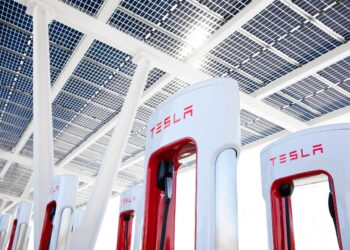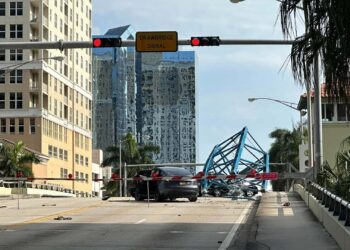Tesla looks set to benefit the most from the billions of dollars in federal tax credits from the Inflation Reduction Act.
The law passed in August 2022 encourages companies to manufacture both cars and batteries in North America, and Tesla is on track to get the most tax breaks, one estimate found.
With several plants already operating in the United States – Fremont and Austin for vehicles, Nevada for batteries and electric motors – Tesla is set to receive some $41 billion in tax credits over the next decade together with battery partner Panasonic. Tesla also broke ground on a lithium refinery in Corpus Christi, Texas, in early May.
According to forecasts from researcher Benchmark Mineral Intelligence, as reported by Bloomberg, Tesla and Panasonic are expected to receive about $1.8 billion in production tax credits this year under the Inflation Reduction Act, compared to $480 million for General Motors and LG Energy Solution.
Mind you, Tesla estimates made public by CFO Zach Kirkhorn in January showed the company expects manufacturing tax credits of $150 million to $250 million per quarter in 2023, or up to $1 billion for the year – that’s without Panasonic. Meanwhile, Ford won’t even be getting incentives at least until 2025.
Tesla has spent years scaling up its manufacturing presence in the United States and that will pay big dividends as incentives from White House’s package of economic laws go into effect.
Tesla said it expects to use the money from the credit to continue cutting prices for customers as part of its strategy to sacrifice short-term profit margins to boost sales volumes as inflation and competition rise.
Tesla’s EV price war creates pressure for automakers like GM and Ford to slash prices, which is problematic because legacy automakers already face extraordinary profitability challenges in electrifying their lineups.
The Inflation Reduction Act incentivizes carmakers to not only assemble vehicles in the United States but also to manufacture battery pack materials domestically. Since Tesla has several automotive and battery factories already in use in the country, it had a massive head start on many other automakers, especially since IRA rewards scale: the more batteries and EVs a company makes in the US, the more money it gets via tax credits.
The law is designed to increase domestic electric vehicle and battery production as currently only about 10 percent of EVs in the world are assembled in the United States, according to the Bipartisan Policy Center cited by Business Insider. The country’s share of battery manufacturing is even smaller.









